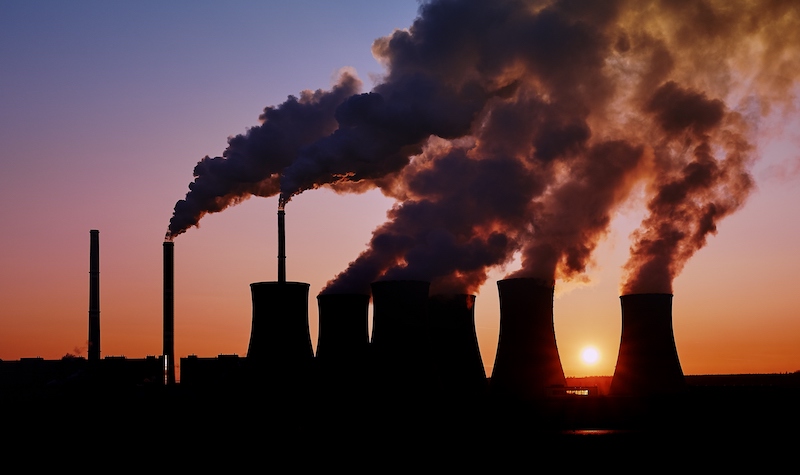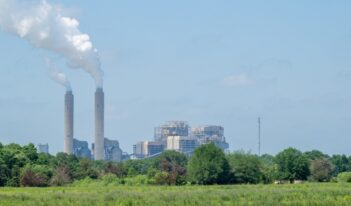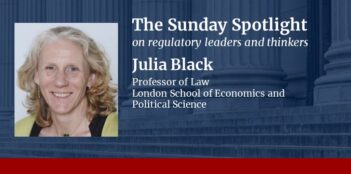
The Trump Administration has degraded environmental enforcement, favoring polluters over citizens’ interests.
The number of inspections undertaken and enforcement cases brought provide traditional metrics for evaluating whether the U.S. Environmental Protection Agency (EPA) cop is “on the beat.” By these measures, the Trump Administration gets a failing grade.
In 2019, for example, EPA nearly halved the number of inspections that it conducted compared to the prior Administration’s annual average, and the agency’s civil and criminal enforcement caseload fell to its lowest level in a quarter century.
Under normal circumstances, these data provide a useful gauge of the overall health of our environmental law system. When enforcement is robust, companies that are not complying with environmental requirements are called out, made an example of, and punished. This enforcement, in turn, reminds and encourages companies that will never see an inspector to invest in the people, management systems, and technology needed to comply with our environmental and health and safety laws.
But although the Trump Administration’s dramatic drop in inspections and cases confirms that traditional enforcement is down, focusing on enforcement statistics masks the Administration’s far more pernicious, wide-ranging attack on the culture of environmental compliance that our nation has built up over the past 50 years. In particular, the Administration has attacked the foundational elements of many of today’s most important environmental protections by launching an unprecedented effort to weaken or take them off the books altogether, diminishing or eliminating the importance of enforcement.
In the climate arena, the Administration has aggressively rolled back greenhouse gas emission limits governing carbon pollution from the power sector, tailpipe emissions from cars and trucks, and methane emissions from the oil and gas industry—the three largest sources of climate pollution. Dropping all methane-based restrictions on oil and gas emissions may represent the Administration’s boldest attempt to shield an entire industry from any exposure to enforcement for its climate-damaging methane emissions. The Administration pushed forward with this rollback, despite an ever-growing body of evidence of the industry’s serious methane problem, and many major oil companies’ request that EPA impose enforceable methane restrictions on the industry.
In addition to attacking individual regulations, the Administration has pushed systematic changes that weaken the underpinnings of existing regulations and provide new defenses against their enforcement. A recent example is EPA’s extraordinary conclusion that it erred in considering pollution “co-benefits” when adopting mercury and air toxics standards for the power sector—providing power companies with an open invitation to challenge enforcement of existing requirements.
As further evidence that the Administration is less interested in enforcing the law than in enabling companies to avoid it, President Donald J. Trump and the Office of Management and Budget (OMB) have called on agencies to enact rules that will tie enforcers’ hands, while giving corporate targets new defenses against enforcement actions. For example, following an October 2019 executive order that calls for “transparency and fairness in civil administrative enforcement and adjudication,” OMB requested input on reforms that “will better safeguard due process in the regulatory enforcement and adjudication settings.”
Several state attorneys general have filed strong comments against the claim that “current federal administrative enforcement and adjudication procedures are not ensuring just and reasonable process.” They also have opposed “OMB soliciting proposals that threaten to hamstring federal agencies’ ability to fulfill their duties to enforce and adjudicate violations of a wide range of federal laws that protect the public health and welfare.” They have emphasized their concern with the “Administration’s dismal record on enforcement of environmental, civil rights, and consumer protection laws.”
The coronavirus provided another excuse for the Administration to side with business over environmental enforcement. As the COVID-19 crisis deepened, the President issued an executive order that said the insertion of greater “fairness” in administrative enforcement and adjudications would provide “regulatory relief for economic recovery.” In response, OMB instructed agencies to adopt new constraints on civil enforcement that read like they are from a criminal defense manual. Agencies are told, for example, to “provide favorable relevant evidence in possession of the agency to the subject of an administrative enforcement action,” ensure that any enforcement activities are “free of unfair surprise,” and apply “the rule of lenity” in administrative investigations and enforcement matters, with any legal ambiguities construed “in favor of the targeted party.”
Perhaps the most notorious evidence of the Administration’s animus toward environmental enforcement was EPA’s invocation of the coronavirus pandemic as the basis for issuing a policy statement that, at the time, indefinitely suspended environmental monitoring and reporting obligations. A coalition of state attorneys general sued and then moved to enjoin the agency from abdicating its responsibilities to protect citizens’ interests in environmental and public health, which are more important than ever amid a public health crisis. EPA relented and withdrew the policy.
Finally, in another blow to effective environmental enforcement, the Administration in 2017 instructed prosecutors to prohibit companies from providing restitution for their environmental harms through “payments to various non-governmental, third-party organizations.” Imagine, for example, if the prosecutors in the BP Deepwater Horizon oil spill or Volkswagen’s diesel emissions fraud scandal—both incidents which were resolved prior to the change in Administrations—had no, or limited, discretion to push the companies to fund beneficial environmental projects as part of their settlements.
An anti-environmental philosophy prompted the U.S. Department of Justice in 2017 to drop a $3 million air pollution mitigation program that Harley-Davidson had agreed to fund as part of a Clean Air Act consent decree. A coalition of state attorneys general strongly objected, noting that states routinely rely on mitigation projects in settlements to reduce pollution harms from violators. In similar fashion, the Justice Department is no longer honoring EPA’s long-standing policy of allowing prosecutors to include “Supplemental Environmental Projects” that directly benefit the environment in settlements.
So, yes, under the Trump Administration, EPA is conducting far fewer inspections and bringing fewer enforcement cases than it has in the past. But the Trump Administration’s attack on the enforcement of our environmental law goes much deeper. By systematically disparaging and removing key regulatory protections and pushing to hard-wire favoritism for polluters over their victims in agency practices, the Trump Administration is turning enforcement of environmental laws, and the very notion of the rule of law, on its head.




